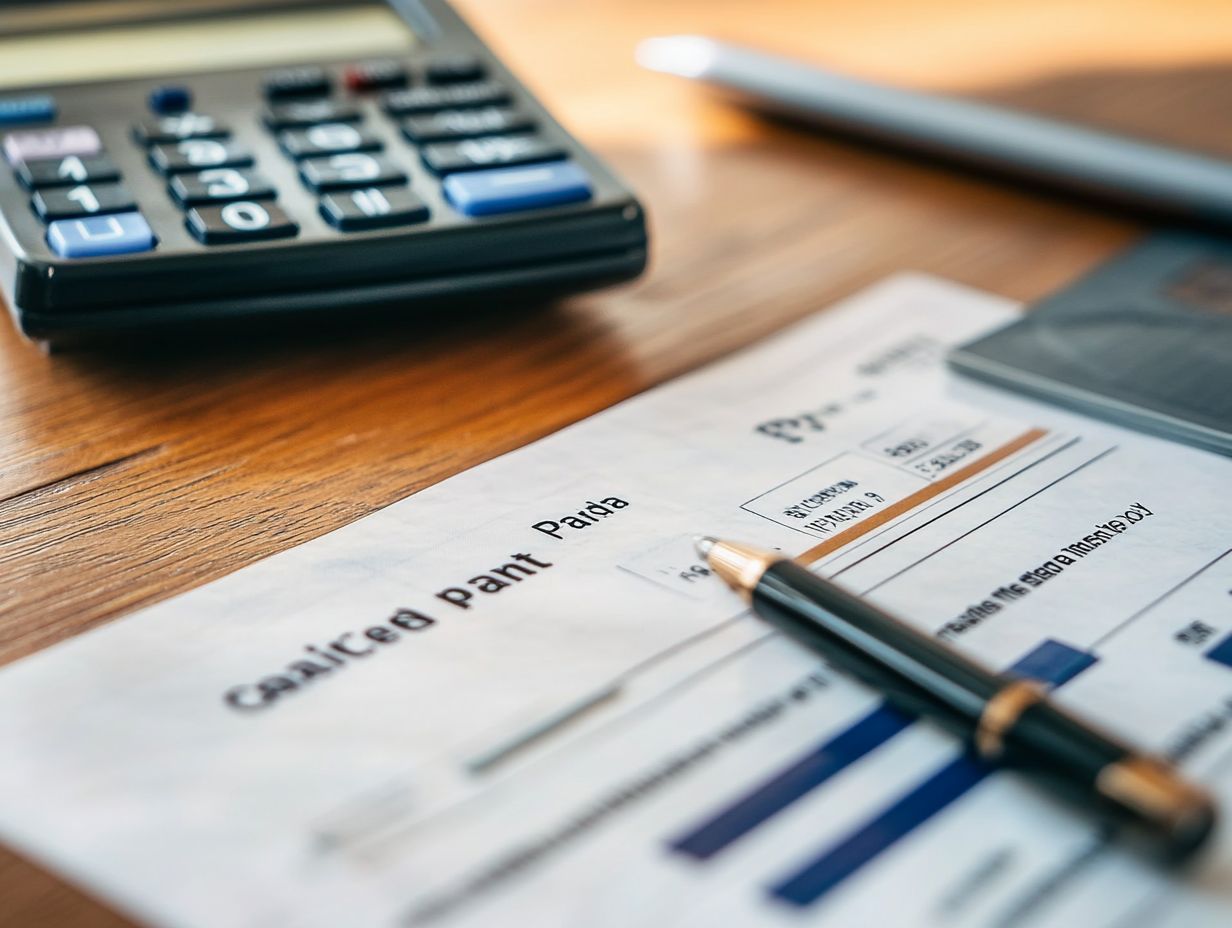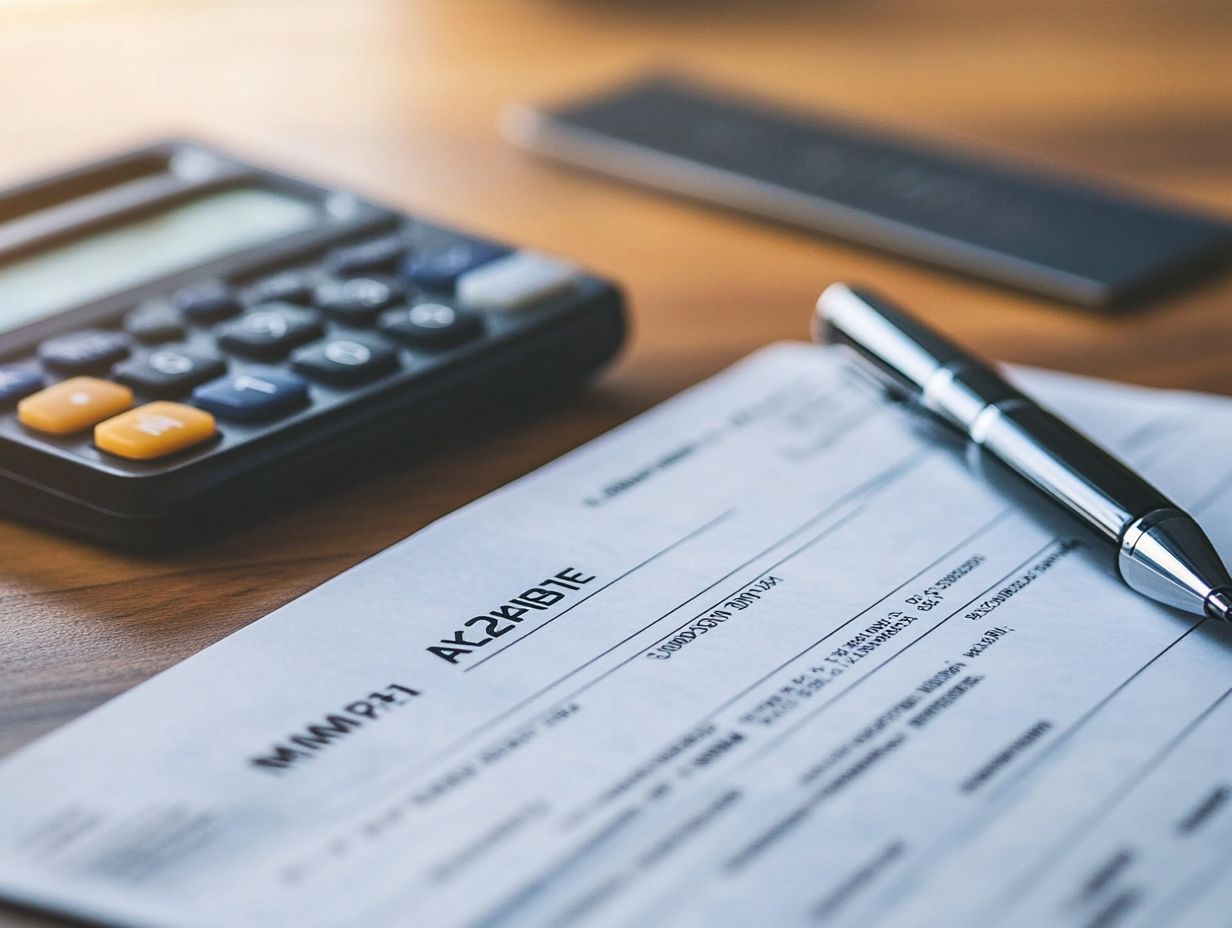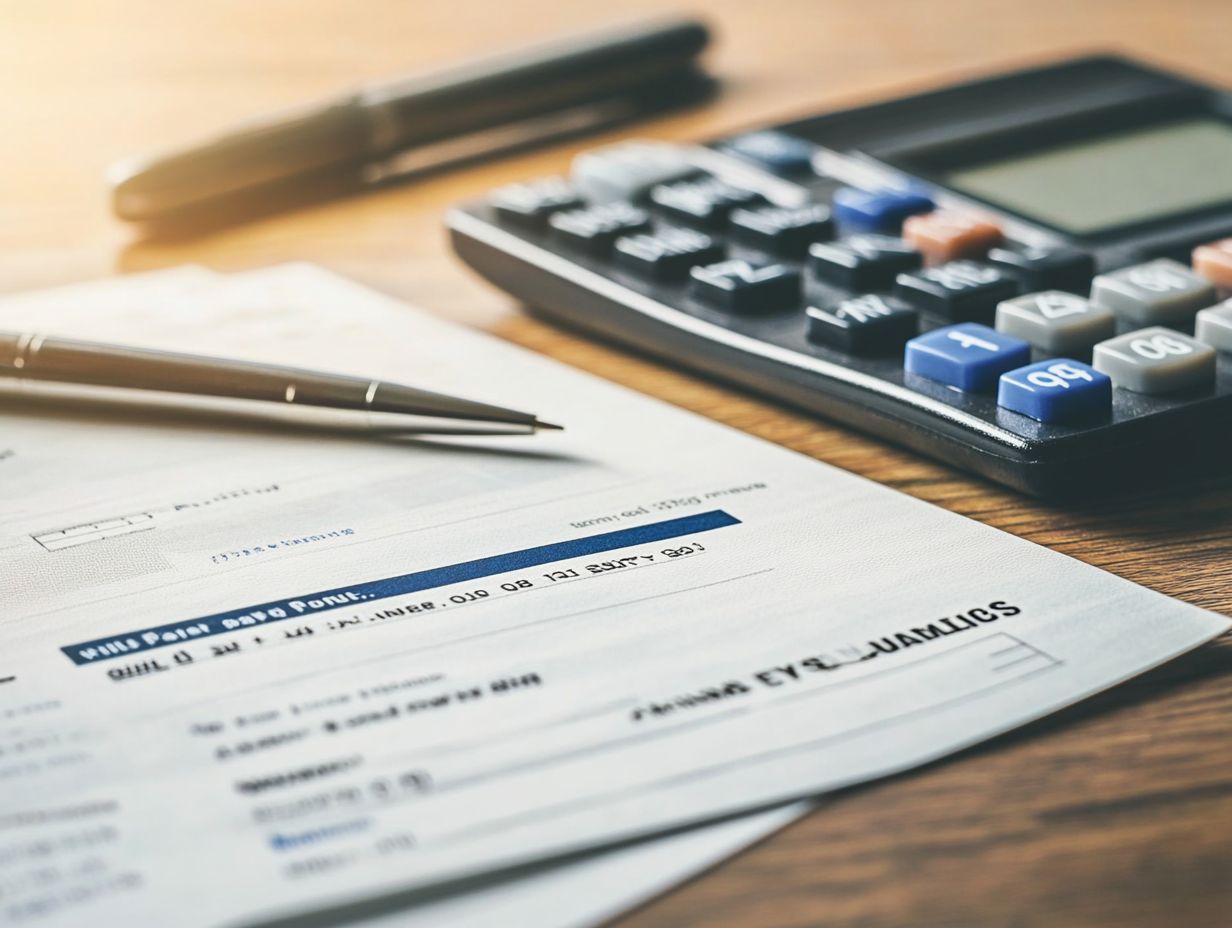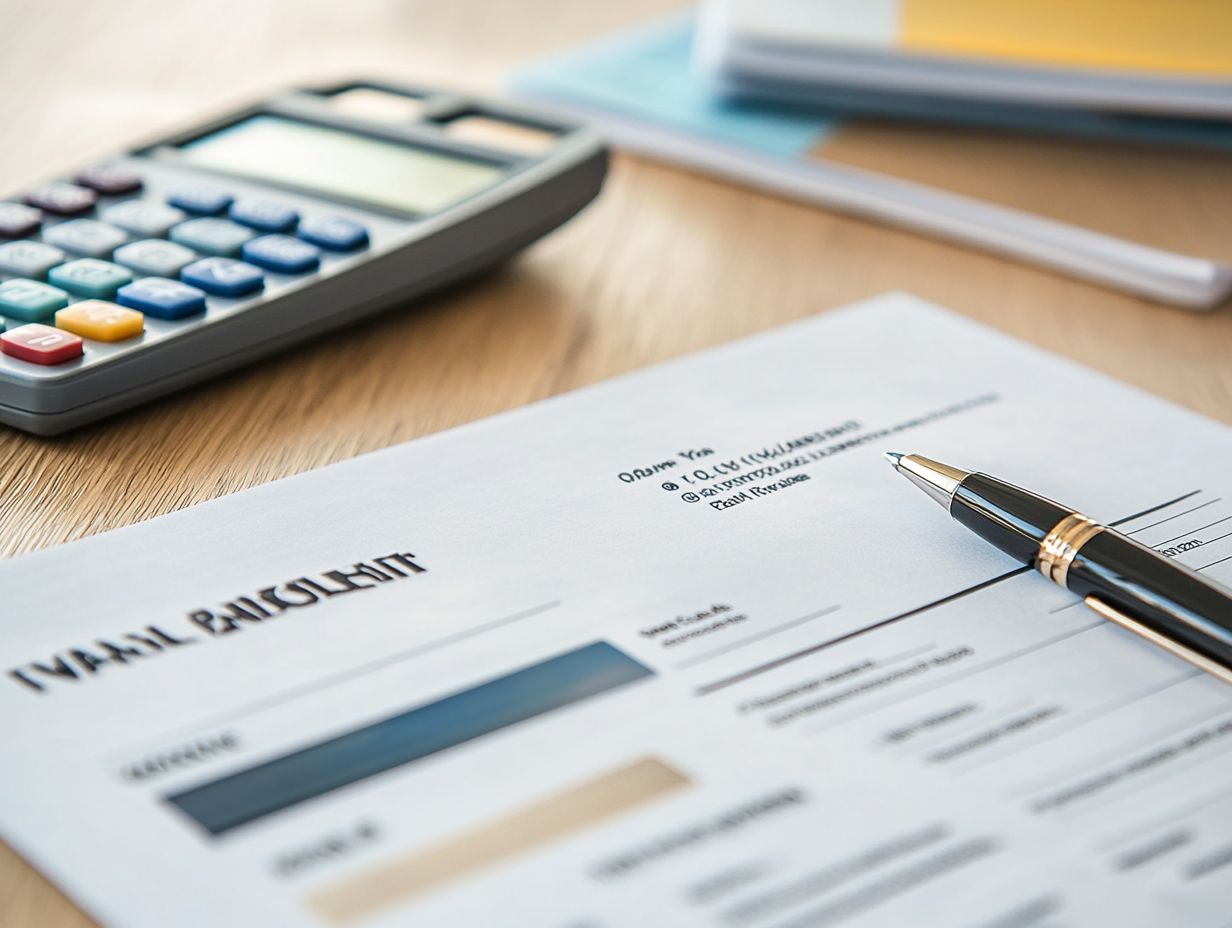Understanding Minimum Payments on Credit Cards
Navigating the world of credit cards can be quite the endeavor, particularly when it comes to minimum payments. You might find yourself pondering what these payments truly signify, how they are calculated, and what their long-term effects on your debt could be.
This article distills the essentials, starting with a clear definition and purpose of minimum payments. It discusses the various factors that influence their calculation, presents strategies for managing these payments effectively, and delves into alternatives for addressing credit card debt with greater efficiency.
Whether you re aiming to take charge of your finances or simply seeking a deeper understanding of your credit card, this guide provides the insights you need.
Contents
Key Takeaways:

- Minimum payments on credit cards are the smallest amount you are required to pay each month on your credit card bill.
- The calculation of minimum payments depends on factors such as your outstanding balance, interest rate, and the policies of your credit card issuer.
- Minimum payments may stretch the time it takes to clear your credit card debt and result in higher interest charges. It is important to manage minimum payments carefully and consider alternative options for paying off debt.
What are Minimum Payments on Credit Cards?
Minimum payments on credit cards are the bare minimum you must pay to keep your account in good standing and avoid late fees and penalties.
Understanding these payments can really help you take control of your finances, as they directly impact your credit score and credit utilization ratio which is the amount of credit you re using compared to how much you have available.
Failing to meet these requirements can lead to increased interest charges and negative marks on your credit report. This can ultimately jeopardize your overall financial health.
Definition and Purpose
The minimum payment on a credit card is the smallest amount you must pay periodically to avoid penalties, like late fees.
However, relying solely on this minimum payment can have significant consequences for your financial health. By consistently meeting these minimum payment requirements, you not only avoid extra fees but also enhance your credit history. This steady financial behavior reflects responsibility, which is essential for maintaining a strong credit score. Meeting these obligations provides a safety net during unexpected situations, allowing you to manage your budget effectively while preserving your creditworthiness for future borrowing.
Ultimately, understanding the importance of minimum payments enables you to navigate your financial landscape more wisely.
How Minimum Payments are Calculated
Calculating the minimum payment on a credit card requires consideration of several factors, including your account balance, interest charges, and the specific policies of credit card issuers, which can differ widely.
Grasping these calculations is essential for enhancing your financial literacy and developing effective budgeting strategies.
Factors that Affect Minimum Payments

Several key factors influence the minimum payment on your credit card: your account balance, interest rates, and your credit utilization rate. Each of these components plays a pivotal role in shaping not just your minimum payment due but also your overall financial landscape.
If you have a higher account balance, you can expect larger minimum payments, which may strain your budget. High interest rates mean that a greater portion of your payment will go toward interest instead of reducing the principal balance.
Your credit utilization rate can also affect your credit score and the interest rates lenders are willing to offer you. Understanding these relationships is vital for effectively managing your payments and ensuring your financial health remains intact.
For more information, check your minimum payment options or explore strategies to better manage your credit.
The Impact of Minimum Payments on Credit Card Debt
Minimum payments have a significant influence on your credit card debt. They often extend your repayment period and lead to higher interest charges, which can adversely affect your financial decisions and tarnish your credit history over time.
How Minimum Payments Affect Interest and Balance
Minimum payments significantly impact both the interest accrued on your credit card debt and the outstanding balance. If you consistently choose to pay only the minimum due each month, you may face higher interest charges.
This situation can create a frustrating cycle of prolonged debt repayment and increased financial stress. When you choose to pay just the minimum, your outstanding balance decreases slowly, while interest charges continue to pile up. This ultimately affects your overall financial health.
Consider exploring alternative strategies, such as balance transfers. A balance transfer means moving your debt to a new credit card, usually with lower interest rates. This can provide lower introductory rates, serving as a lifeline for those struggling with high-interest debts.
Understanding these payment strategies is crucial, as each comes with its own set of pros and cons that can significantly shape your financial journey.
Managing Minimum Payments
Effectively managing minimum payments is essential for maintaining your financial health and avoiding pitfalls like late fees. Unlock your financial freedom by adopting smart budgeting tips today!
You can achieve this by employing various payment strategies, such as setting up automatic payments to streamline your process and ensure timely transactions.
Tips for Making Minimum Payments

To consistently meet your minimum payments, dive into various payment options and adopt effective budgeting strategies tailored to your financial obligations.
By prioritizing your expenses and meticulously tracking your income, you can craft a budget that allocates funds for essential payments each month. Utilizing tools such as budgeting apps or spreadsheets can elevate your awareness of spending habits and highlight areas ripe for savings.
Set up automatic payments now to ensure you never miss a deadline. Regularly review your accounts to identify patterns and make necessary adjustments to your budget. This way, you will stay on top of minimum payments and avoid potential late fees.
Alternatives to Minimum Payments
Exploring alternatives to minimum payments opens the door to effective strategies for reducing credit card debt and achieving financial relief.
Consider options such as:
- Structured payment plans
- Credit counseling
- Hardship programs
All tailored to assist you on your journey toward financial stability.
Options for Paying Off Credit Card Debt
You have several options for tackling credit card debt, including balance transfers, debt settlement, and making informed financial decisions to protect your consumer rights.
These approaches can be tailored to your unique financial situation and significantly influence your overall financial health. For example, a balance transfer allows you to shift existing debt to a new card, often at a lower interest rate. This can lead to substantial savings on interest and expedite your repayment journey.
On the other hand, debt settlement involves negotiating with creditors to lower the total amount owed. Be aware that this may negatively impact your credit score.
By establishing a budget and prioritizing your debts, you can take charge of your payments efficiently, paving the way for long-term financial stability.
Frequently Asked Questions
What is the minimum payment on a credit card?

The minimum payment is the least amount you must pay each month to keep your account in good standing don’t miss it! This payment helps you avoid late fees and potential negative impacts on your credit score.
How is the minimum payment calculated?
Minimum payments are usually a small percentage of your total credit card balance. This percentage varies depending on your card issuer.
Why is it important to understand minimum payments on credit cards?
Understanding minimum payments helps you avoid high interest charges. Missing minimum payments can hurt your credit score.
What happens if I only pay the minimum payment?
If you only pay the minimum, you ll incur interest on the remaining balance. This delays your payoff time and increases the total interest you pay.
Can I pay more than the minimum payment?
Yes, paying more than the minimum is always advisable. It helps decrease the interest paid and improves your credit score.
Is the minimum payment the same as the full balance?
No, the minimum payment is generally less than the full balance due. It s the least you can pay to avoid fees and protect your credit score. Paying the full balance is always best if you can.






